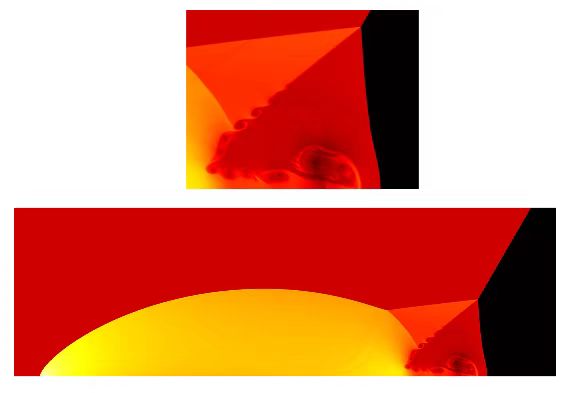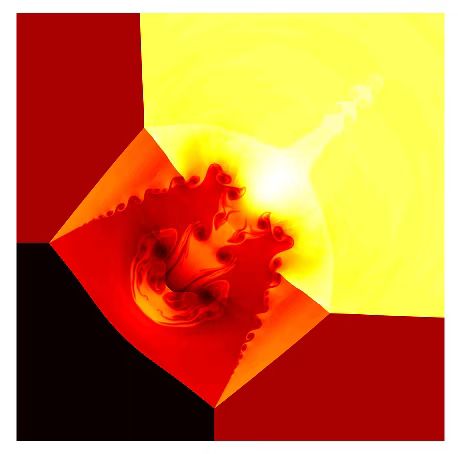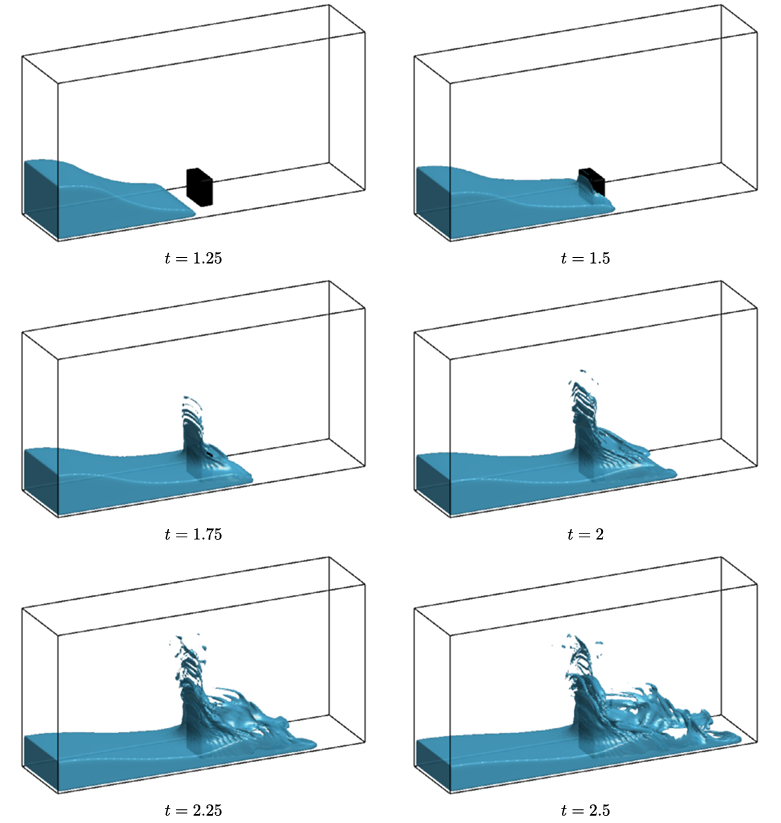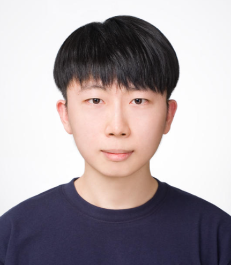Junxiang Yang’s Team for computational physics and mathematics


Dr. Yang is an Assistant Professor in School of Computer Science and Technology / Faculty of Innovation Engineering at Macau University of Science and Technology (MUST 澳門科技大學). Before he joined MUST, he was a postdoctoral researcher at Sun Yat-sen University (2021.12-2023.06). He obtained his doctoral degree in Applied Mathematics, Korea University, 2021 under the guidance of Prof. Junseok Kim. His research interests are Computational Multi-phase Fluid Dynamics, Phase-field Method, Numerical Simulations in Science and Engineering, and Mathematical Modeling. He has published 88 SCI papers as first or corresponding author from 2018. In 2025, he was selected into the list of World’s Top 2% Scientists (data from Elsevier and Standford University). In 2024, he was selected into the list of Top 0.5% Scholars (data from ScholarGPS).
已主持科研項目如下 (Research Grants):
國家自然科學基金青年科學基金項目 (National Natural Science Foundation of China, PI, 2023-2025);
澳門特別行政區科學技術發展基金 (Macau Science and Technology Development Fund (FDCT), PI, 2025-2027);
澳門特別行政區科學技術發展基金 (Macau Science and Technology Development Fund (FDCT), PI, 2024-2026);
澳門科技大學研究基金項目 (Macau University of Science and Technology Faculty Research Grant (FRG), PI, 2024-2025);
博士後科學基金面上項目 (China Postdoctoral Science Foundation, PI, 2022-2023)。
博士期間被中國駐韓大使館教育處評為2020年度優秀在韓國家公派留學人員 (Excellent government-sponsored Ph.D. student);
入選2022年度博士後國際交流計劃引進項目 (International Postdoctoral Exchange Fellowship Program (Talent-Introduction Program))。 
Introduction of PF_CFD Team
PF_CFD Team (相場_計算流體動力學 課題組) aims to develop high-performance mathematical models and computational algorithms in science and engineering. As a leader of my lab, I have published more than 90 SCI papers from 2018 and accumulated related experiences and skills in the fileds of phase-field method and incompressible fluid simulations. Moreover, I am also interested in immersed boundary method, level-set method, lattice Boltzmann method, image processing, and 3D volume reconstruction.
In my homepage, I provide several simple but practical MATLAB codes for interested readers or students. These codes can be used to simulate phase-field Cahn-Hilliard dynamics, Fluid flows, square phase-field crystal dynamics, dendritic growth, Natural convection, and Image segmentation, etc. I will update other open source codes in the future. In the Publications, I only provide the papers as first or corresponding author. For more details of my publications, please refer to my ResearchGate page. Some interesting simulation results are pasted in Portfolio.
Present research topics (selected)

- Computational Fluid Algorithms:
- Structure-preserving time-marching schemes for the incompressible Navier-Stokes equations;
- Finite volume method for the fluid flows on surfaces with direct discretization;
- Finite volume lattice Boltzmann algorithms for fluid flows on curved surfaces;
- Closest point-type finite difference method for the Navier-Stokes equations on surfaces;
- Efficient and high-order accurate algorithms for fluid-structure interactions.
- Numerical Simulations of Multi-phase Fluids:
- Strongly stable numerical methods for two-phase flows with large desnity ratio and high Reynolds number;
- Energy-stable and linear schemes for multi-phase flows with variable density and viscosity;
- Accurate, stable, and efficient algorithms for multi-phase fluids in complex domains;
- Multi-physics coupled fluid modeling and the associated numerical computations;
- Hybrid phase-field / lattice Boltzmann / immersed boundary methods in complex fluid simulations.
- Computational Biology and Material Sciences:
- Phase-field modeling of red blood cell and its structure-preserving algorithms;
- Immersed boundary-diffuse interface method for simulating cell division;
- Mathematical modeling of tumor growth and tissue growth;
- Accurate and highly efficient algorithms for crystal and quasi-crystal models;
- Energy-stable computations for copolymers in irregular regions.
- Image Processing and Volume Reconstruction:
- Maximum principle-preserving numerical methods for phase-field models of image segmentation;
- Unconditionally stable numerical methods for phase-field models of 3D volume reconstruction;
- Lattice Boltzmann-Threshold dynamics methods for image processing.
- Numerical Methods for Partial Differential Equations:
- Error estimations of convex splitting-type methods for the Swift-Hohenberg equations;
- Adaptive narrow band algorithms for solving Allen-Cahn and Cahn-Hilliard equations;
- Novel explicit and practically stable methods for gradient flow problems;
- Multigrid algorithms for accelerating the convergence.
Open positions / 招生信息
組內畢業及科研要求:
博士生畢業條件: 以第一作者身份發表5篇JCR Q1 前10%等級的SCI文章 (禁止發以MDPI, Hindawi, Frontiers為代表的相關OA雜誌);
學生以第一作者發表領域內頂級期刊,如JCP、CMAME、JSC、JFM、SIAM系列等,每篇獎勵澳門幣2萬元,以第一作者發表其他例如CNSNS、CPC、AMC、AMM、CICP、POF等JCR Q1 前10%的SCI期刊,每篇獎勵澳門幣1萬元。

Ph.D. degree graduation requirements: Must publish 5 SCI articles in the top 10% of JCR Q1 journals as the first author (publications in OA journals represented by MDPI, Hindawi, Frontiers are prohibited).

